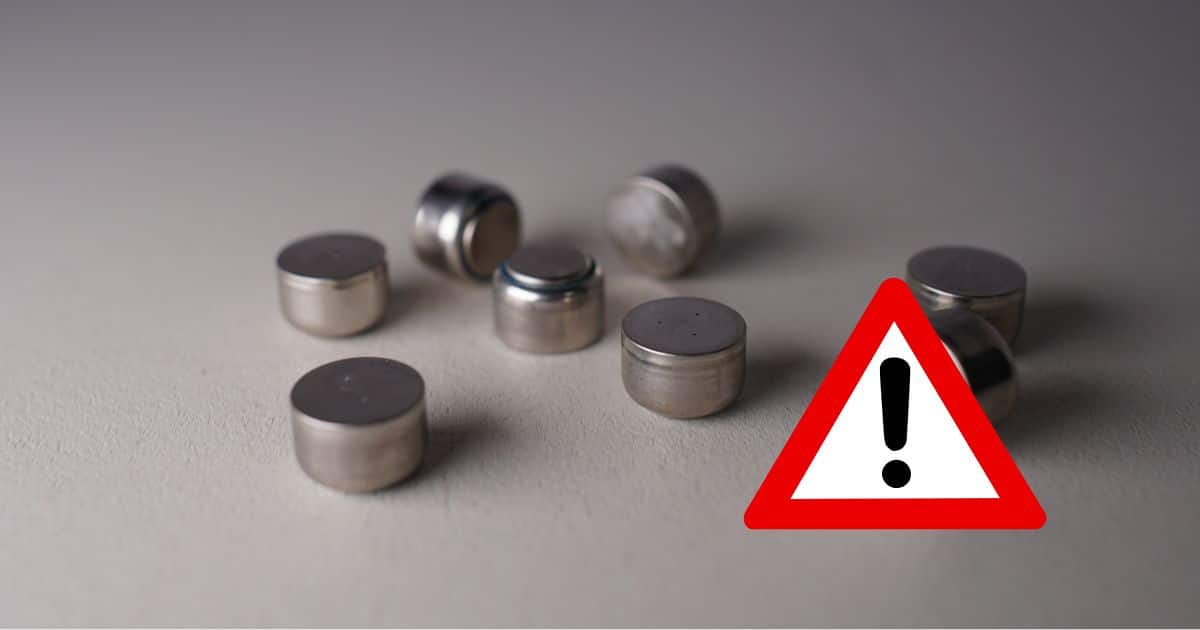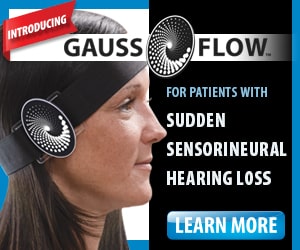by Dr. Lisa Klop
As hearing aids continue to shrink in size, their batteries have kept pace. Small “button” batteries can easily be swallowed by pets and small children, and even adults have done so by accident. Depending on the type of battery involved, ingestion can simply require waiting for nature to take its course ― or become a life-threatening emergency.
Battery Compounds That Pose Great Risk
Batteries can contain different metals and chemical compounds from one another depending on the type of battery, the manufacturer, and what they are meant to power. Batteries containing lithium are a serious health hazard if consumed accidentally. After swallowing, saliva rapidly triggers an electric current that can cause severe burns. You have roughly two hours to get a lithium battery removed before life-threatening injuries result, including massive tissue damage and internal bleeding.
Since the initial symptoms of lithium exposure may be difficult to identify due to their resemblance to more common illnesses (e.g., coughing, drooling, stomach upset) it may be next-to-impossible to figure out if emergency care is needed unless you notice one of your hearing aid batteries is missing or the victim says they swallowed one. Therefore, it is imperative hearing aid wearers who still use lithium batteries in their hearing devices or remote controls take every possible precaution to keep them as far away from young children and pets as possible. Better yet, avoid using hearing aid batteries containing lithium altogether, as there are many safer alternatives available.
Zinc-air batteries are far more commonly used in hearing aids and their accessories today. But while these are less likely to be as fatal as batteries containing lithium, swallowing one still necessitates an immediate visit to the doctor (or vet). That’s because some zinc-air batteries still contain trace amounts of mercury, a poisonous heavy metal that can leak out as the battery casing disintegrates during digestion. The risk of mercury poisoning from accidentally-ingested batteries is one of the reasons many states now require batteries to be mercury-free.
Swallowing lithium batteries can lead to life-threatening injuries, causing severe burns, massive tissue damage, and internal bleeding. It is crucial to seek immediate medical attention within two hours of ingestion to prevent serious harm. Additionally, while zinc-air batteries are more commonly used in hearing aids, they can still pose risks if swallowed due to potential mercury leakage. It is important to store all hearing aid batteries safely out of reach to protect children and pets from accidental ingestion.
However, each state has different restrictions, and some exclude button-cell batteries from the mercury ban, instead only requiring that they be properly recycled. Again, the best way to protect pets and children from mercury battery poisoning is to store any hearing aid batteries well out of their reach, or look for mercury-free options. Other potentially hazardous compounds found in some hearing aid batteries are lead and cadmium, both of which are toxic, although the small amounts contained in a single battery are unlikely to cause lasting harm from a single exposure.
What to do if someone swallows a hearing aid battery
If you know someone swallowed a hearing aid battery, take them to an emergency room immediately, and bring the battery packaging along with you, if still available. ER personnel can use the battery identification information to evaluate the level of risk involved. Do not try to induce vomiting or offer liquids to “wash it down” before going to the ER, as this could move the battery into a dangerous position in the esophagus or cause it to corrode faster. An x-ray will determine where the battery is positioned and whether it is likely to pass safely through the digestive tract for natural elimination. If it is lodged in the esophagus, surgical intervention will be necessary.
If doctors determine it’s safe to wait for elimination, the person who swallowed the battery will have to check their stools for a few days to establish the battery has been evacuated (or you will have to check, if a young child, mentally impaired person, or pet swallowed it). A national hotline has been established specifically to deal with this type of situation. If you suspect or know a loved one swallowed a hearing aid battery, you can call the National Button Battery Ingestion Hotline at 202-625-3333 day or night, seven days a week, for advice on what to do next.
If your pet gulped down your hearing aid battery (a common problem with dogs and cats that like to chew up hearing aids), there is a hotline for them, as well. The Pet Poison Helpline is also available 24/7 at 855-764-7661. Be aware there is a $49 fee per incident, so have your credit card on hand. You can also pack your dog or cat into a carrier and take them to an animal emergency center nearby for examination and treatment.
Choose safe hearing aid batteries
While swallowing a button-sized battery is never a good idea, your choice in batteries can reduce the occurrence from a life-threatening emergency to a mere eye roll-inducing incident. Mercury-free zinc-air batteries purchased from established, quality manufacturers will keep your hearing aids and accessories secure and charged. Ideally, the batteries should be triple-sealed to prevent leakage, so even if one is inadvertently swallowed it is less likely to break apart and release chemicals into the body.
If your hearing aids are rechargeable, choose nickel-metal-hydride batteries that are free of mercury, lead, or cadmium for maximum convenience and safety. And no matter what type of batteries you use, make sure they are always stored well away from pets and children. When it comes to older adults, keep them well-separated from medication to avoid unfortunate mix-ups.
Dr. Lisa Klop is an Educational Specialist for Sivantos, Inc. She is responsible for training customers and sales staff on the company’s current technology and products. She conducts training sessions in customers’ offices, remotely, via webinars, and at regional and national events. Areas of particular expertise include hearing assistive technology and the fitting of kids and teens. Prior to joining Sivantos (then Siemens Hearing Instruments) in 2012, she operated a private dispensing practice for 6 years. Other clinical experience includes hospital, ENT and non-profit clinics. Lisa obtained her doctorate degree in Audiology from Central Michigan University in 2005.






